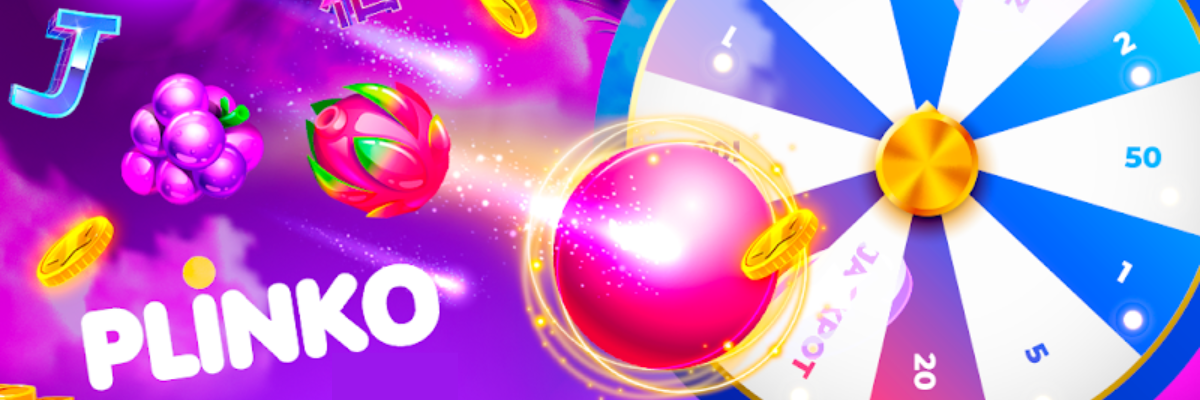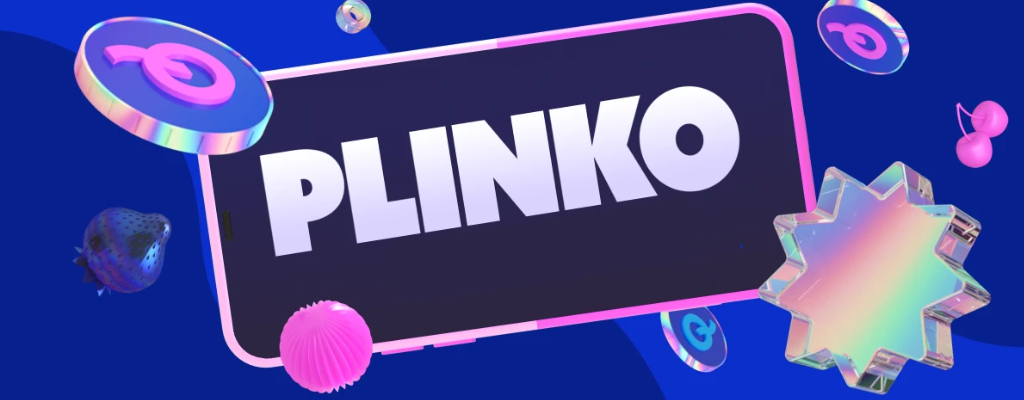Si vous avez déjà vu l’émission « The Price is Right », le mini-jeu game Plinko pourrait vous être familier. Il s’agit d’un jeu de boules proposé par de nombreux casinos en ligne. D’ailleurs, nos experts vous présentent des casinos qui en proposent ci-après.
| Casino | Caractéristiques |
| Nomini Casio | 1 500 $ + 1 bonus Crab, plus de 4 300 jeux, licence Curaçao |
| Rabona Casino | Plus de 8 000 jeux, bonus de bienvenue de 100 % jusqu’à 500 €, licence Curaçao |
| Lucky8 Casino | Bonus de bienvenu 200 % jusqu’à 500 €, plus de 2 000 jeux, licence Curaçao |
| Viggo Slots | Plus de 2 000 jeux, licence Curaçao, bonus de bienvenu sur trois dépôts 100 € plus 225 free spins |
| MyStake Casino | Plus de 1 500 jeux, licence Curaçao, bonus de bienvenue 100% jusqu’à 1 000 € |
| Seven Casino | Bonus de bienvenu 7 500 €, licence Curaçao, plus de 4 000 jeux |
L'histoire du jeu Plinko

C’est l’entreprise Spribe qui a développé Plinko mini jeux. Il s’est inspiré de l’émission télévisée « The Price is Right » pour le concevoir. Rothstein, le célèbre streamer de casino Twitch, l’a ensuite rendu populaire. Maintenant, le jeu est proposé par de nombreux casinos.
Spribe a repris les caractéristiques clés de l’émission télévisée lors de la création de ce jeu de boule. Cela fait de lui un des jeux les plus ludiques proposés en ligne. D’ailleurs, vu le succès des mini jeux Plinko, d’autres développeurs l’ont utilisé comme source d’inspiration pour créer leurs jeux en ligne.
Les développeurs de Plinko games
Plinko casino en ligne est un jeu de Spribe. Il s’agit d’un des fournisseurs de jeux les plus célèbres dans le monde de l’iGaming. Il se consacre aux mini-jeux depuis 2018. Outre les jeux Plinko casino, Spribe a par exemple développé Aviator, Goal ou encore Hilo.
Il possède une licence de développement de logiciels et réalise un test régulier du HCVS. Ses jeux sont donc fiables. La plupart affiche en plus un RTP élevé. C’est le cas de Plinko game online, dont le RTP atteint les 98%.
Pourquoi jouer à Plinko casino?
Le jeu Plinko de Spribe vous intéresse, mais vous hésitez à y jouer. Découvrez ci-après les principaux avantages et inconvénients du Plinko game online.
| Avantages | Inconvénients |
| Mode automatique et Plinko free disponibles | Les gains sont rapides, de même pour la banqueroute |
| Ludique et facile | Risque d’addiction à cause des tours rapides et des gains alléchants |
| RTP élevé | Certaines parties se ressemblent trop |
| Application mobile | 3 niveaux de difficultés et 3 couleurs seulement |
Caractéristiques et détails du jeu Plinko

Le mini-jeu Plinko casino dispose de 3 niveaux de difficultés. Vous pouvez choisir entre 12 pins, 14 pins et 16 pins. Lors du jeu, vous aurez le choix entre 3 couleurs dont le vert, le jaune et le rouge quand vous jouez aux Plinko game online Plinko jeux. Les gains dépendent de la couleur et des pins que vous choisissez lors de vos parties de Plinko game online.
- Avec le vert, les gains sont : x11 en 12 pins, x18 en 14 pins et x35 en 16 pins
- Avec le jaune, les gains sont : x25 en 12 pins, x55 en 14 pins et x118 en 16 pins
- Avec le rouge, les gains sont : x141 en 12 pins, x353 en 14 pins et x555 en 16 pins
Vous aurez accès à de nombreuses fonctionnalités en jouant aux jeux Plinko en ligne. Il y a tout d’abord les mises instantanées qui permettent de miser et de connaître directement les résultats sans voir les billes tomber. Après, Plinko mini jeux propose aussi le mode auto pour jouer automatiquement. A cela s’ajoutent des raccourcis. Les boules du Plinko game casino peuvent par exemple tomber rapidement si vous appuyez sur la barre espace du clavier.
| Valeur | Description |
| Fournisseur | Spribe |
| Mise maximale | 100 € |
| Mise minimale | 0,1 € |
| Gains maximums | X1000 |
| RTP | 98.00% |
Comment commencer à jouer au Plinko online?
Pour jouer au Plinko jeu, vous devez tout d’abord choisir un casino en ligne Plinko, un site qui propose ce mini-jeu. Vous devez vousinscrire et approvisionner votre bankroll. Cherchez ensuite le jeu dans la ludothèque du casino et lancez une partie.
Pour ce faire, choisissez tout d’abord une mise de départ pour votre partie de Plinko game online. Le minimum est de 0,1 € lors d’une partie de Plinko game online Plinko jeux, mais vous pouvez miser jusqu’à 100 € si vous le souhaitez. Ensuite, vous devez choisir les pins (122, 14 ou 16) et cliquez sur la couleur de votre choix.
Une balle de cette couleur tombera et rebondira jusqu’à arriver sur une case qui indiquera le multiplicateur que vous avez obtenu. Si la bille tombe par exemple sur 12 lors d’une partie de game Plinko et si vous avez misé 10 €, vous aurez 312 €.
Comment jouer à partir d’un appareil mobile?

Pour jouer au Plinko jeu sur mobile, vous devez télécharger et installer l’application «Plinko Master». L’appli est disponible sur Play Store et App Store. Si le casino que vous avez choisi dispose aussi d’une application mobile, vous pouvez utiliser la version mobile du casino pour jouer à casino Plinko sur votre téléphone ou tablette.
Conseils et astuces pour jouer au Plinko online
Pour augmenter vos chances de gagner et maximiser vos gains jeu Plinko casino, jouez plusieurs couleurs tout en optant pour les tours automatiques. Si vous avez peur de prendre des risques lors de vos parties de Plinko gambling, gagnez petit à petit en choisissant 16 pins et en jouant la couleur jaune ou verte.
Vos gains lors d’une partie de casino Plinko seront constants. Les pertes seront moins fréquentes. Cette astuce vous permet en plus de gagner jusqu’à x118. Si vous aimez le risque et si vous voulez gagner de gros gains, jouez 14 pins sur la couleur rouge et verte en même temps.
Pour voir quelle astuce vous convient le mieux, exercez-vous en jouant à une démo de mini jeux Plinko ou au Plinko free. Appliquez ensuite les astuces qui marchent pour vous lors de jeux Plinko casino en ligne avec de l’argent réel. Quand vous jouez au casino en ligne Plinko, pensez à bien gérer votre bankroll et à jouer de façon responsable pour éviter la perte totale et l’addiction à ce jeu.
Découvrez la liste des meilleurs CASHlib casino pour les joueurs français !
Conclusion
Si vous n’avez jamais joué à Plinko game casino, essayez-le. Il est accessible à tous, tant en termes de règles que de mises, en plus, il dispose d’une mode gratuite si vous voulez le tester. Son RTP élevé et ses gains importants font rêver de nombreux joueurs.
En plus, même s’il s’agit d’un jeu de hasard, il y a des stratégies que vous pourrez adopter pour gagner aux Plinko games. Gardez juste en tête que le risque de tout perdre et de tomber dans l’addiction sont toujours présents. Soyez responsable quand vous jouez au Plinko gambling et gérez bien votre bankroll.

